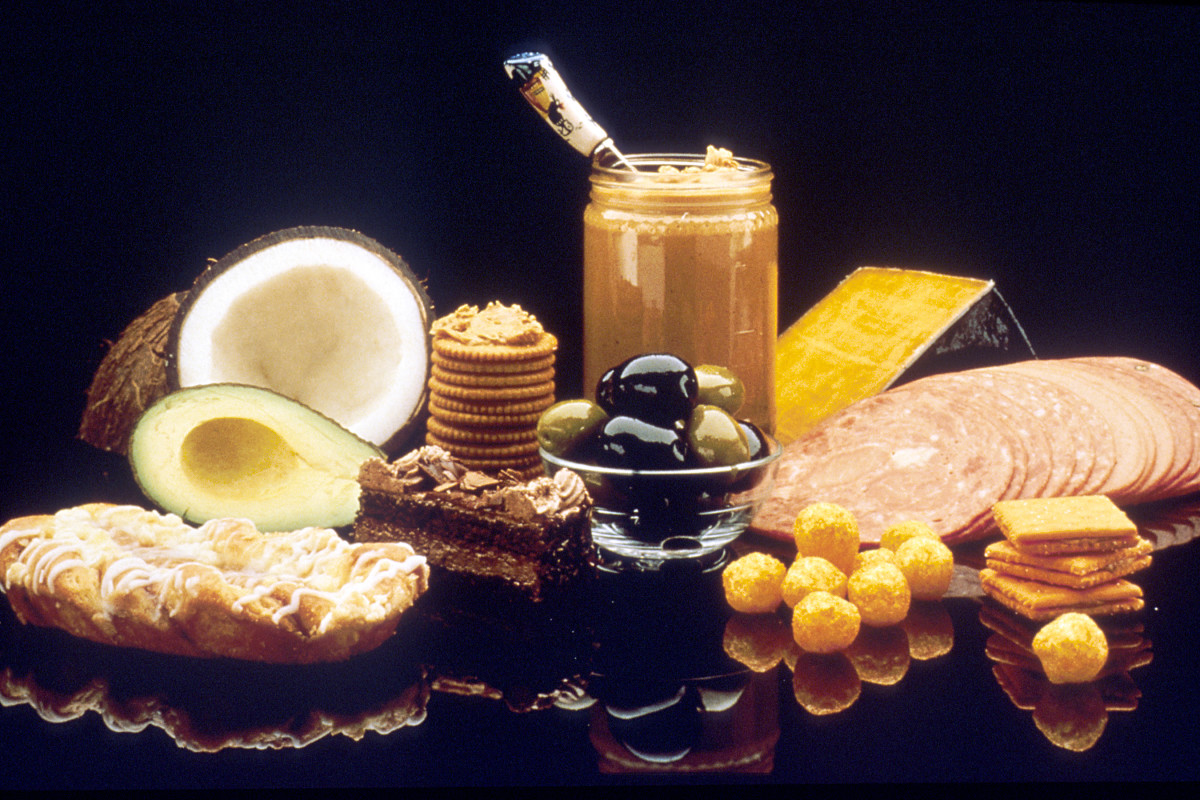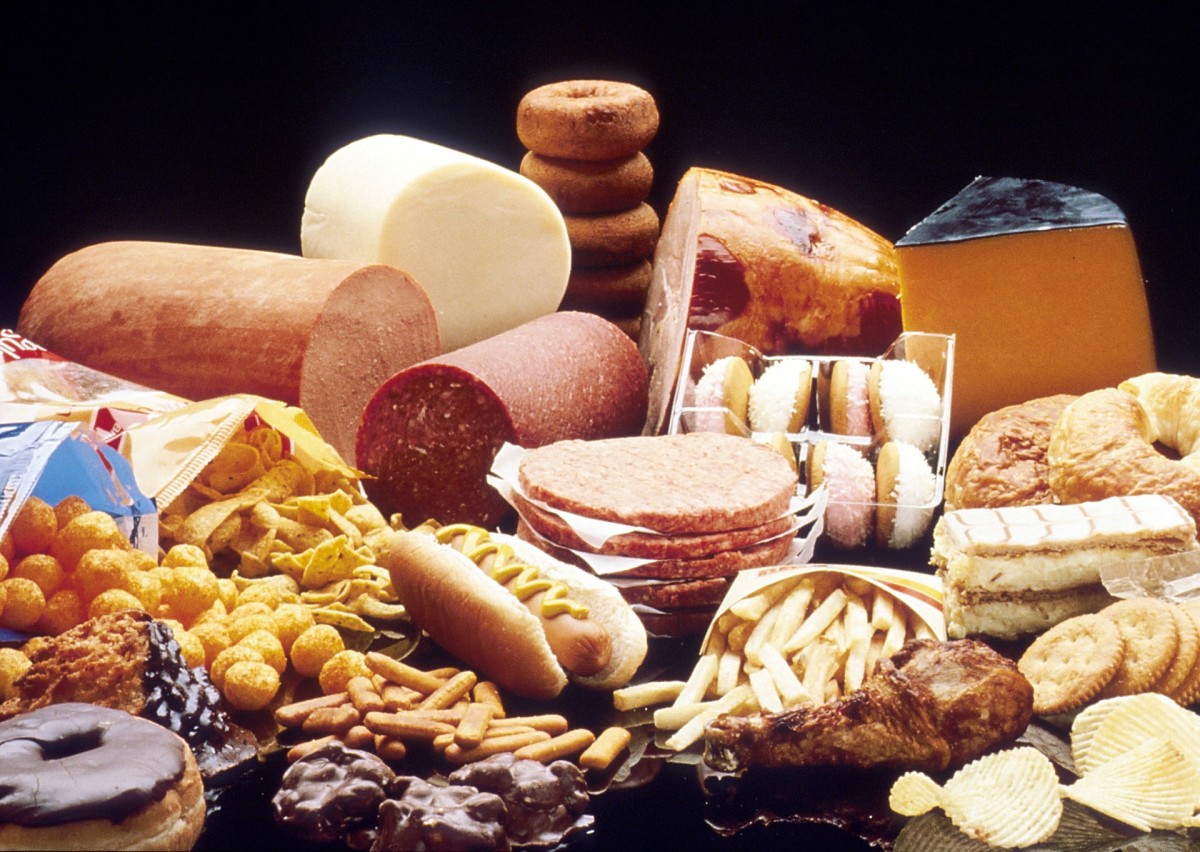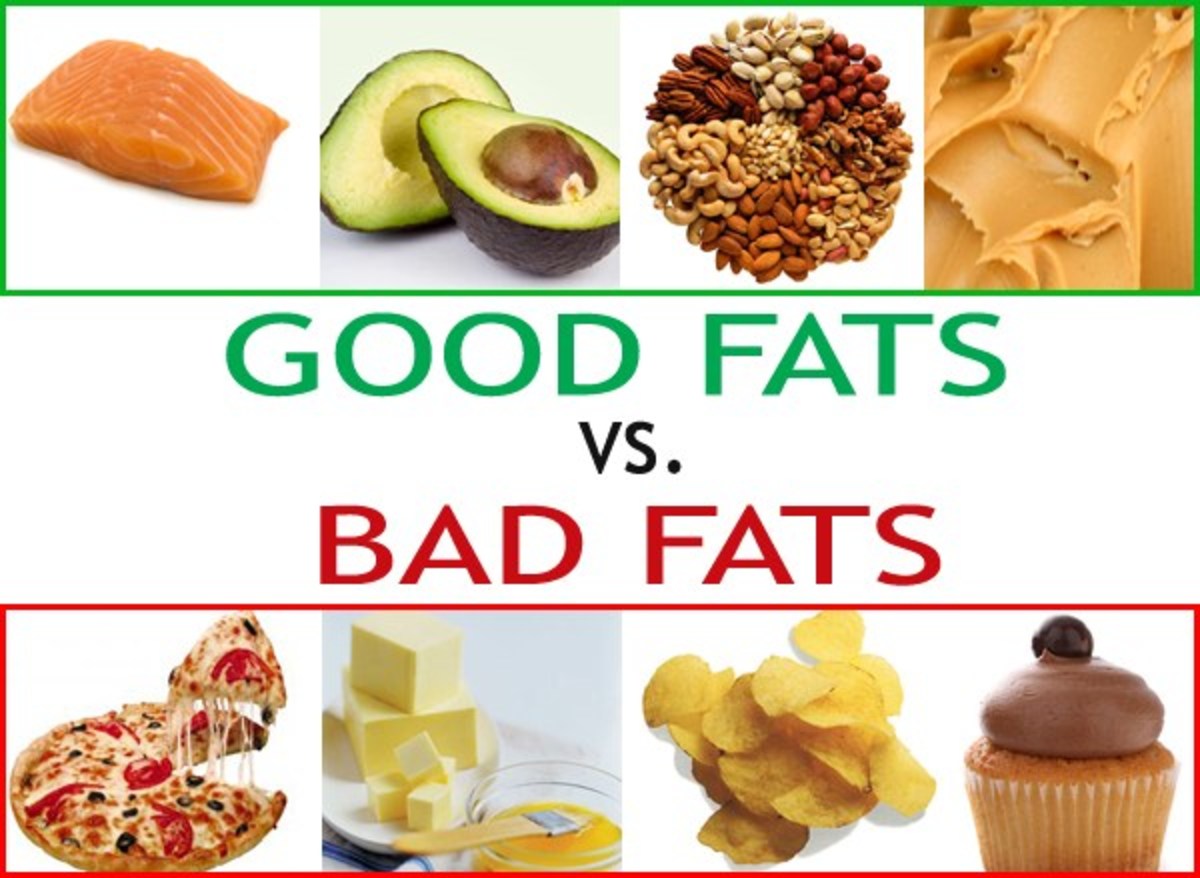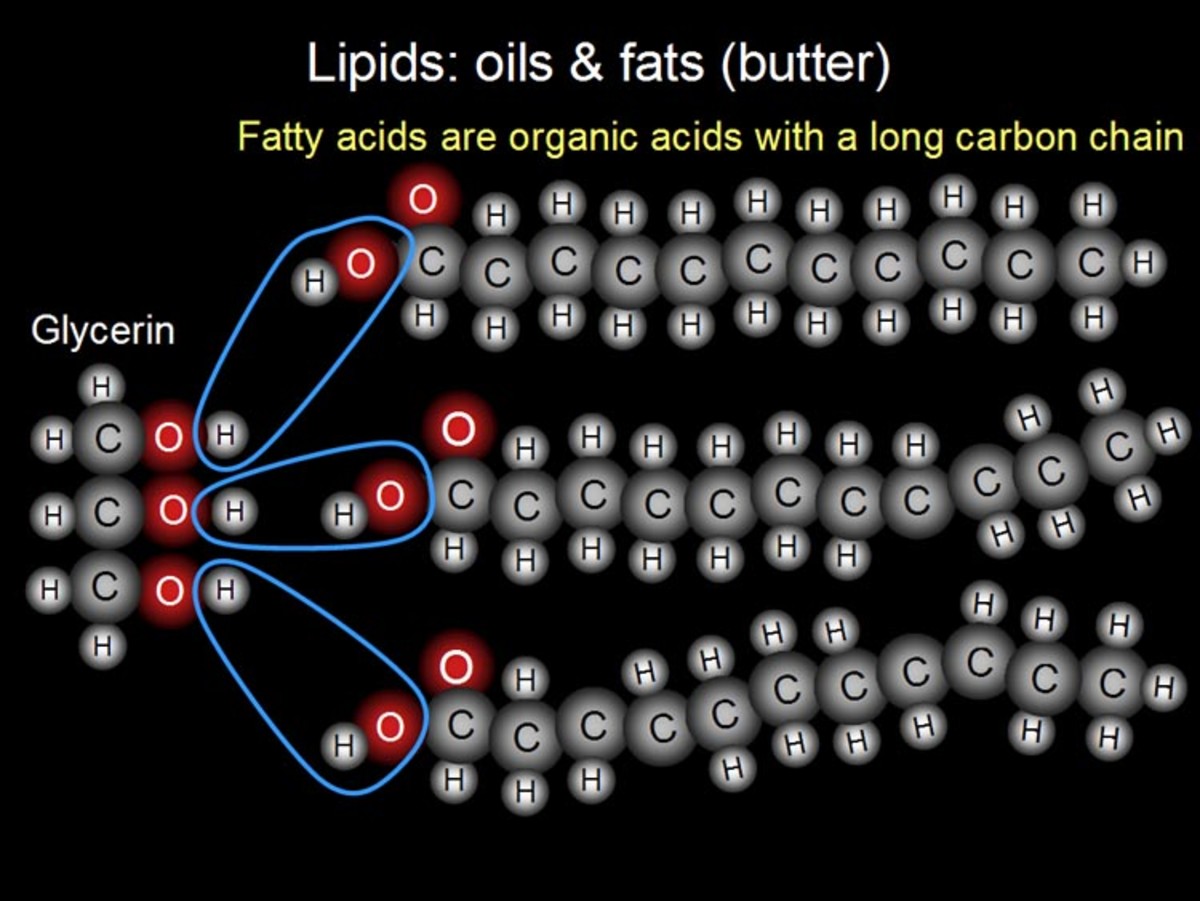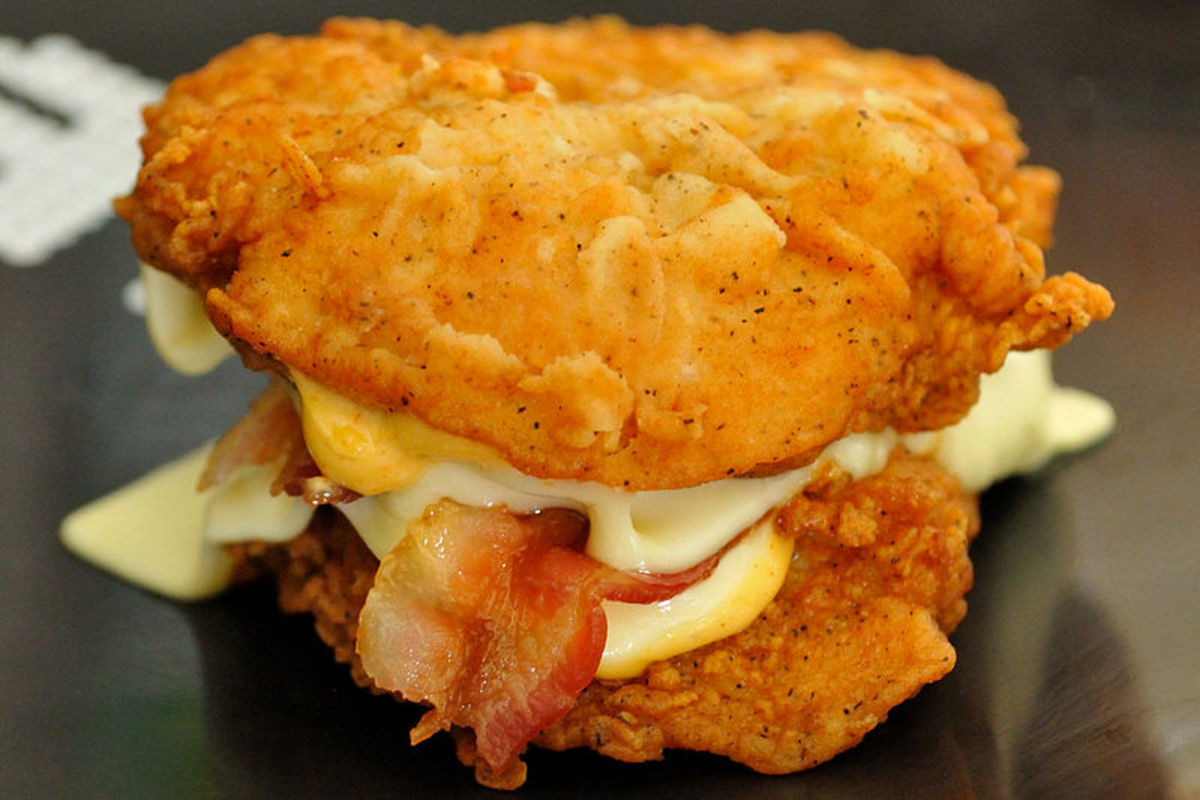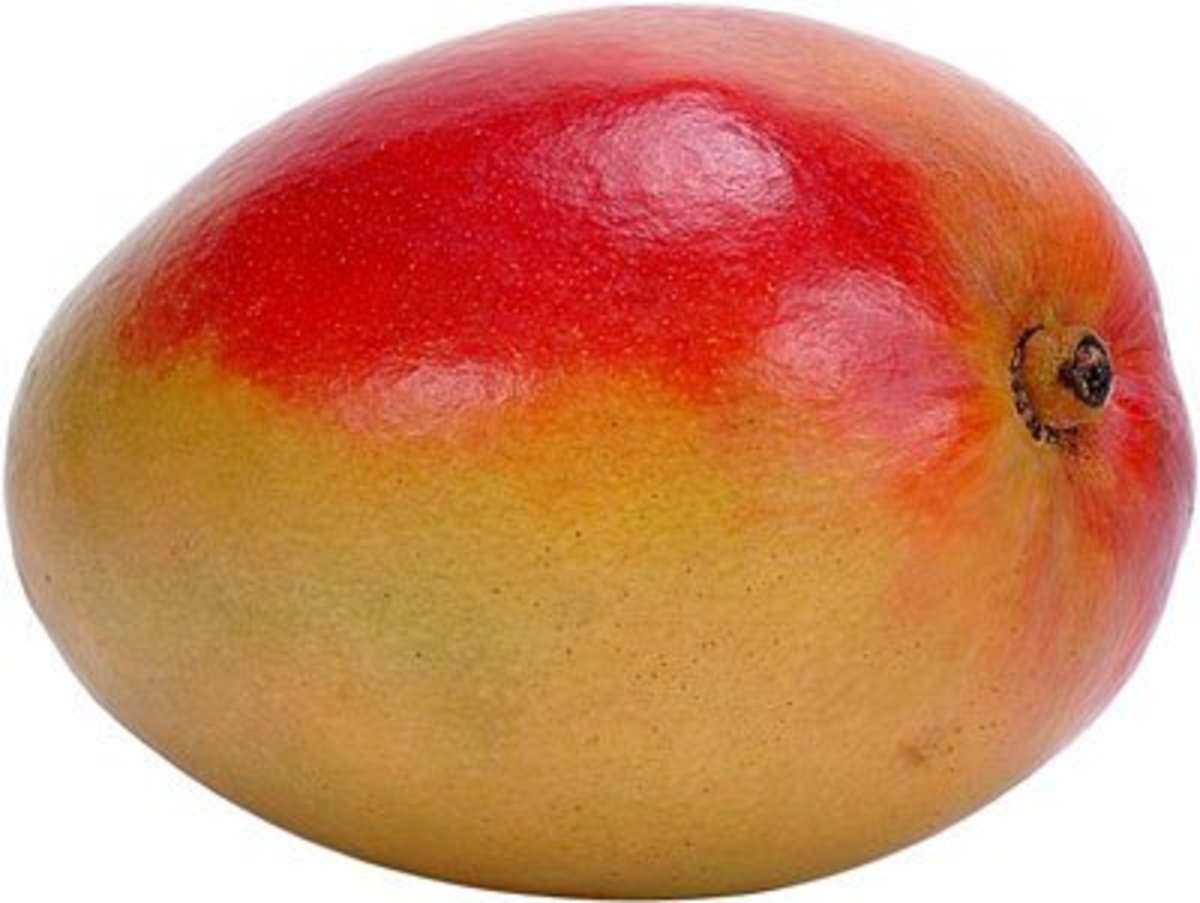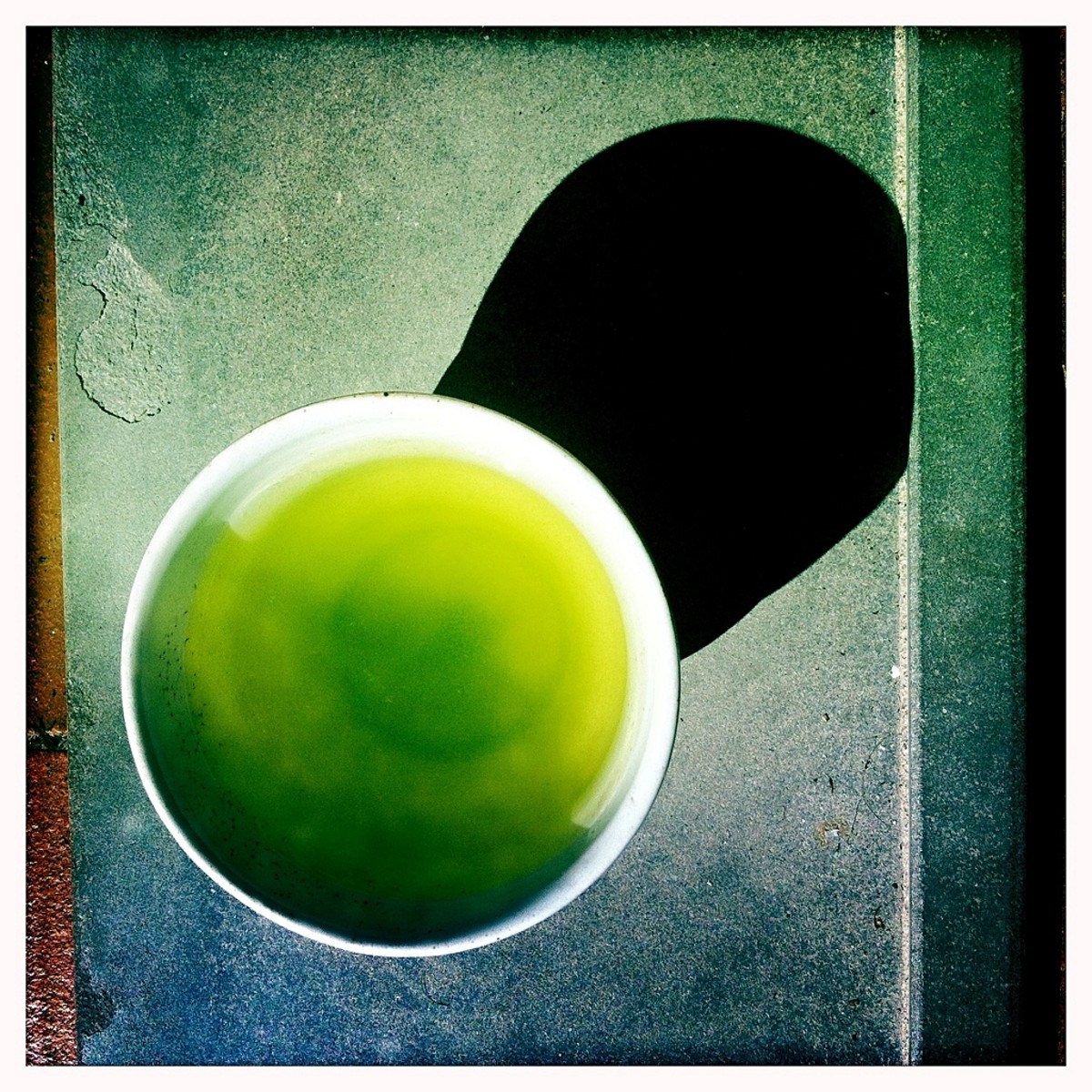How To Gain Muscle By Eating Well Part 3 - Fat
How To Build Muscle - By Eating Fat?
Fat is the boogie man of modern dietary advice, implicated as a major cause of coronary heart disease and obesity. But it's absolutely essential to your well-being. And if you reduce your fat intake too much, or God forbid, cut it right out, you'll have serious health issues because of it. Fat is necessary for many vital bodily processes.
Fats consist of a wide group of compounds that are generally soluble in organic solvents and generally insoluble in water. Chemically, fats are triglycerides, triesters of glycerol and any of several fatty acids. While the words 'oils', 'fats', and 'lipids' are all used to refer to fats, 'oils' usually refers to fats that are liquid at normal room temperature, while 'fats' refers to fats that are solids at normal room temperature. 'Lipids' is used to refer to both liquid and solid fats, usually in a medical context.
Fats form a category of lipid, distinguished from other lipids by their chemical structure and physical properties. They play an important part in our diet, serving both structural and metabolic functions. In your body they're broken down by enzymes called lipases, produced in the pancreas.
Examples of edible animal fats are lard, fish oil, butter and extra virgin olive oil, peanut, soya and coconut oils, and cocoa butter. They are obtained from fats in the milk and meat of animals, and from edible plants. They can be categorized into saturated fats and unsaturated fats. Unsaturated fats can be further divided into cis fats and trans fats. The key to fat intake - or so we're told - is to stay away from bad fats and only eat good fats. But which is which?
Saturated Fat
Saturated fats are commonly found in animal products such as meat and whole milk dairy products like cream and hard cheese, and egg yolks. Saturated fats elevate blood cholesterol by increasing both the good HDL (high-density lipoproteins) and the bad LDL (low density lipoproteins). Elevated levels of LDL can clog arteries and cause heart disease, and are also more readily stored as body fat. Or at least that's what we've been told for a number of years.
Mmmmmmmmmmmmmmmm. Fat.
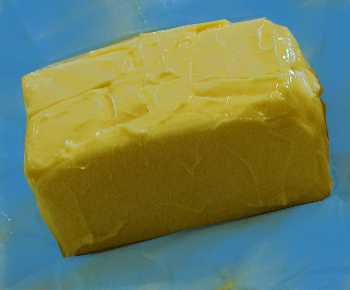
Saturated Fats - Not So Bad After All?
Saturated fats are commonly found in animal products such as meat and whole milk dairy products like cream and hard cheese, and egg yolks. Saturated fats elevate blood cholesterol by increasing both the good HDL (high-density lipoproteins) and the bad LDL (low density lipoproteins). Elevated levels of LDL can clog arteries and cause heart disease, and are also more readily stored as body fat. Or at least that's what we've been told for a number of years.
So saturated fat is bad. Or is it? There's considerable dispute over the role of animal fats and cholesterol in heart disease at the moment, with some authorities leaning more towards an inflammation model as the main cause of atherosclerosis, rather than the build up of fatty plaque supposedly caused by saturated fats. If you're interested, read Big Fat Lies by Hannah Sutter.This is an area where the arguments are going to run and run. There's an increasing suspicion that the advice we've all been following regarding our diet may be flawed, the product of bad science.
There is growing medical evidence to suggest that high carbohydrate diets are worse for your triglycerides and LDL cholesterol than a higher fat diet.
HDL levels come down with high carbohydrate diets and researchers have postulated that the best way to lower trigylcerides, LDL and to raise the good HDL levels is to reduce the intake of high glycemic carbohydrates and omega 6 fatty acids and replace them with more omega 3 fatty acids.
Cut them out...
Trans fats are used in commercially processed foods to increase their shelf-life...and they're linked to stroke, heart disease, and diabetes in people who eat a lot of them. Trans fats are not essential fatty acids.
Because they raise levels of LDL cholesterol, and lower the levels of 'good' HDL cholesterol, trans fats consumption increases the risk of coronary heart disease. Health authorities all over the world recommend your consumption of trans fat be reduced to trace amounts. Trans fats from partially hydrogenated oils - like margarines - are more harmful than naturally occurring oils.
Trans fats are bad fats. Eliminate trans fats from your diet.
Get The Skinny On Fat From Amazon:
Unsaturated Fats Are Good For You
Unsaturated fats, divided into Monounsaturated and Polyunsaturated fats, are easier for your body to break down. Some of them act as antioxidants that can actually help you lose stored fatty tissue in the body. These fats are found naturally in foods like nuts and avocados. These fats have a great effect on the cardio system as they work to lower the bad LDL cholesterol in the body. Unsaturated fats are good fats.
Omega 3 Fatty Acids
The best type of fat to have in your diet is Omega 3 fatty acids. These fats are found in oily fish, such as salmon, or mackerel, and are said to have significant health benefits. It's claimed they reduce inflammation, help prevent cancer growth, and improve brain function. The farm raised fish is deficient in Omega 3 fatty acids - go for the wild fish.
Omega 3 fatty acids actually help combat conditions such as depression, fatigue, joint pain, and even type 2 diabetes. Because they reduce inflammation, they're good for the body builder as they promote muscle recovery.
What Kind Of Fats Should I Buy At The Supermarket?
Buy butter, and leave margarine well alone. Also buy extra virgin olive oil for salad dressings and pizza topping, as it has great flavour and a high polyphenol content - which is what makes it so healthy. Buy ordinary olive oil for cooking. Don't use it to deep fry, as it burns at a lower temperature than, say, corn oil and isn't really suited to it. But you won't be deep frying if you're working out and trying to build muscle, right?
Avocadoes contain healthy fat, and you can add to the taste of guacamole you make with them with chopped onion and chilli. Peanut butter is a great staple, and makes a quick breakfast with wholemeal toast and banana.
Oily fish, as described above. Cook with lemon and butter for flavour.
Nuts - plain, never salted - are nutrient dense and full of healthy fat. Brazils, walnuts, cashews, almonds, hazelnuts - they're all good. Skinny blokes should snack on them.
Bottom Line On Fat?
Vitamins A, D, E, and K are fat-soluble, meaning they can only be digested, absorbed, and transported in conjunction with fats. Fats are also sources of essential fatty acids, an important dietary requirement.
Fats play a vital role in maintaining healthy skin and hair, insulating body organs against shock, maintaining body temperature, and promoting healthy cell function.
Fats also serve as energy stores for the body, containing about 9 calories per gram of fat. They are broken down in the body to release glycerol and free fatty acids. The glycerol can be converted to glucose by the liver and thus used as a source of energy.
Fat also serves as a useful buffer against harmful chemicals. Whenever a particular substance reaches unsafe levels in the bloodstream, the body can effectively dilute it by storing it in new fat tissue. This helps to protect vital organs, until such time as the offending substance can be metabolized or removed from the body.
It's almost impossible to remove fat from the diet altogether - and it would also be unhealthy to do so. Some fatty acids are essential nutrients, meaning that they can't be produced in the body from other compounds and need to be consumed in small amounts. All other fats required by the body are non-essential and can be produced in the body from other compounds.
Bottom line? Stay away from artificial fats like margarine and instead eat more healthy fats - olive oil, oily fish, avocado, whole eggs, butter. Pay close attention to the fat content of any processed foods you eat and keep it to a minimum. Even when you're building the perfect body, fats are a vital part of your diet. They protect your organs, keep your body insulated, maintain healthy hair and skin, and provide a sense of fullness after meals. Eating enough healthy fat is one of the keys to good health and well being and a great body.
More Of The Skinny On Fat:
- Health Benefits of Polyphenols in Olive Oil | The Olive Oil Source
The health benefits of olive oil are well known. Olive oil is the main source of fat shown to be associated with longevity in those persons living in the Mediterranean region. Scientists have assumed previously that monounsaturated fat (MUFA) contain - Bodybuilding.com - Good Fats, Bad Fats.
This article will focus on fats, the recent health claims approved by the FDA regarding keeping your diet healthy with the right kinds of fats (the good fats), and how to apply this to a bodybuilding diet. - How to Eat to Gain Muscle: 6 steps (with pictures) - wikiHow
How to Eat to Gain Muscle. For many of us, gaining muscle may conjure up images of countless hours in the gym but not necessarily how to properly feed our bodies. After all, your body needs calories and nourishment to feed growing muscle...


